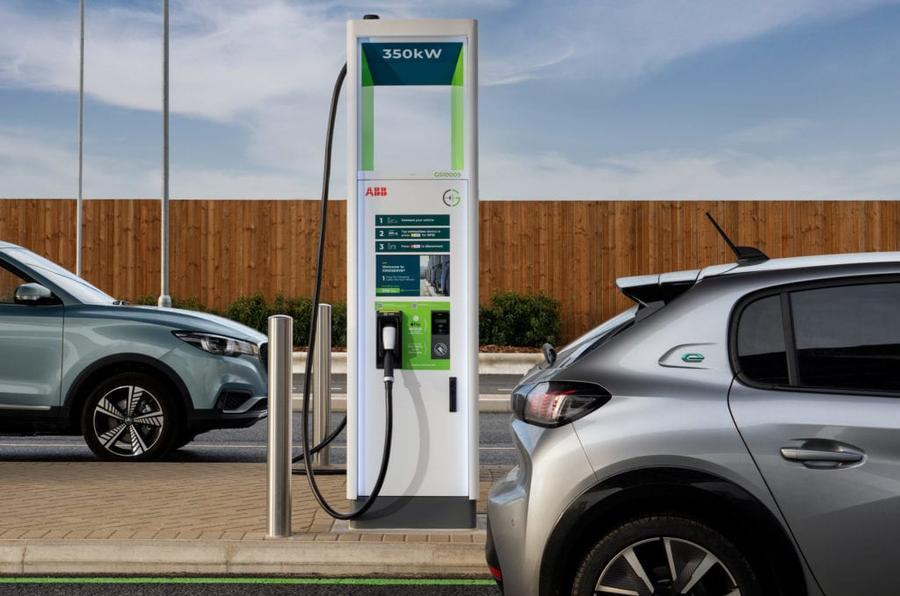The Net Zero Strategy outlined by the UK government is not short of ambition: it has to be bold, given the hugely challenging goal of reaching net zero emissions by 2050.
While transportation is just one of many strands of the economy the report covers (accounting for 15 of the report’s 368 pages), there is plenty of significance in there for the car industry - both positive developments and notes of concern.
Full story: UK Net Zero Strategy includes zero-emission vehicle mandate
The positives include a commitment to spend more on charging infrastructure and to support the UK car industry’s switch to electrification. Particularly encouraging is the promise of £620 million for charging infrastructure – particularly on-street charge points – and plug-in vehicle grants, and the promise to support the car industry in developing new technologies that can create jobs.
The biggest new policy is confirmation of a zero-emission vehicle mandate that will require car firms to sell an increasing percentage of ZEVs between 2024 and 2035. Given most car firms are already ramping up their EV ambitions, that rule is more likely to crystallise thinking than set a direction – but it will motivate those firms to really push pure EVs.
But the bold ambitions and policies in the Net Zero Strategy are somewhat frustratingly lacking in detail. For example, how will that £620m on the transition to EVs be spent? “Further details will be published in due course.”
How, exactly, will the new zero-emission vehicle mandate work? And, for that matter, what will qualify as "significant zero-emission capability" that vehicles sold from 2030 until 2035 must achieve? Both of those points will be decided after a public consultation in 2022.
I appreciate this report is designed as a strategic overview rather than a gradual breakdown of policy - and it is welcome that details of policies such as the ZEV mandate are being publicly consulted on. Still, we are just nine years away from 2030, and it’s vital that both the public and the car industry gain clarity on such issues as soon as possible.








Join the debate
Add your comment
As someone that quite likes the idea of an electric car I don't fear them coming in greater numbers. What I do fear is the government haven't a clue what state the local electricity networks are like. As someone who worked in the supply industry until recently I can say with some confidence that £620 million will not make a dent in the total needed to provide most people with charging capabilities. The grid network is fine, the generation will get greener but charging your car at home will become a nightmare. As for the amazing Tesla fast charging network let's see how good this is when more people buy Teslas and they have to wait to use one. It has always been the same, poor people will be worse off. Can't afford the vehicles, can't gain access to charging so how will this work in levelling up society.
Maybe we should think about what motoring journalists can do? How about:
1. Stop denigrating new technology (EVs) and stop romanticising old technology (ICEs). 2. Recognise that fossil fuel is starting a death spiral and that promoting ICE cars now is simply equivalent to trying the pull the wool over the eyes of motorists. 3. Start talking about the massive environmental impact of extracting, transporting, refining and burning fossil fuels. For example, the use of cobalt in oil refining and the massive electricity consumption of oil refineries. There is no point in hanging onto yesterday's ICE technology for new vehicles, because it's rapidly becoming a stranded asset. Motoring journalists need to help get car buyers into EVs and ahead of the curve, so that they don't suffer financially from buying increasingly obsolete ICE cars.
"And of course, every EV in the UK runs on 100% fossil fuel. The green electricity we produce is far less than we use."
@Artill that is complete BS. As I am writing this on a Saturday evening at peak electircity iusage time UK electricity is made up of 40.1% renewables and 23.9% low carbon (mainly nuclear) with only 36% coming from fossil fuels.Where I live in NW England electricity production at the moment is coming from 57.9% renewable and only 14.5% fossil fuels. Check it out yourself here electricityproduction.uk